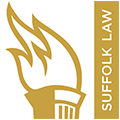
Lissa McKinney
41 Years District & Superior Court throughout Massachusetts. Experience matters!
I graduated Suffolk University & Suffolk University Law School and started my career as as a trial lawyer with the Committee for Public Counsel Services (CPCS) in Worcester and Boston. My courtroom and trial experience spans 41 years and more than 1,500 bench or jury trials, probable cause hearings, restraining order hearings and evidentiary hearings. Despite broad experiences in superior & district court, I'm presently focusing my work on personal injury cases, clerk magistrate hearings, restraining order and harrassment order hearings, ticket and motor vehicle hearings, and ALL matters of criminal defense in the District Court. Outside the courtroom, I represent clients with licensing issues at the Registry of Motor Vehicles including Immediate Threat suspensions. As my schedule permits, I pursue firearms licensing appeals.
I previously worked as Adjunct Clinical Instructor at Suffolk University Law School, and supervised 3rd year law students providing indigent criminal defense just as I did in school. Later, I served as Staff Attorney for Suffolk Lawyers for Justice (SLJ), the Suffolk County bar advocate program assuring the quality of lawyers representing indigent criminal defendants in greater Boston courts. I've lectured more than 20x at various educational seminars sponsored by Massachusetts Continuing Legal Education (MCLE), the Boston Bar Association, Suffolk County Bar Advocate Program, SLJ, and CPCS, such as: District Court Bar Advocate Training; Essential Rules of Criminal Procedure; Trying Drug Cases in Massachusetts; Emerging Areas of Criminal Practice; Hot Tips for Trying Criminal Cases, Probation Violation Proceedings; Defending on a Shoestring; Pre-Trial Conference Rules; Evidence-Getting It In and Keeping It Out.
I am admitted to the Massachusetts Bar,the U.S. District Court for the 1st Circuit, & the Florida Bar and a
member of the Massachusetts Association of Criminal Defense Lawyers (MACDL);Massachusetts Academy of Trial Attorneys (MATA).
- Criminal Law
- Criminal Appeals, Drug Crimes, Expungement, Fraud, Gun Crimes, Internet Crimes, Sex Crimes, Theft, Violent Crimes
- Domestic Violence
- Domestic Violence Criminal Defense, Domestic Violence Restraining Orders
- Personal Injury
- Animal & Dog Bites, Brain Injury, Car Accidents, Construction Accidents, Motorcycle Accidents, Premises Liability, Truck Accidents, Wrongful Death
- Traffic Tickets
- Suspended License
- Registry of Motor Vehicles- suspensions, immediate threats, unpaid citations, tr
-
Free Consultation
Free consultation for first 25 minutes.Fees for review and assessment beyond consultation are addressed during consultation. - Credit Cards Accepted
-
Contingent Fees
Contingent fees are accepted for personal injury cases such as motor vehicle accidents, property accident and related torts.
- Florida
-

- Massachusetts
-

- English
- Member
- Massachusetts Association of Criminal Defense Lawyers
- Current
- Member
- Massachusetts Academy of Trial Attorneys
- Current
- Suffolk University Law School
- J.D. (1984) | Criminal law, student lawyer clinical program, labor and employment
- -
-

- Massachusetts Association of Criminal Defense Lawyers (MACDL)
- Member
- Current
-

- Massachusetts Academy of Trial Attorney's
- Member
- Current
-

- Florida State Bar # 642540
- Member
- - Current
-

- Massachusetts State Bar # 544172
- Member
- - Current
-

- Probation Surrenders, Boston
- Suffolk Lawyers for Justice (SLJ)
- Evidence: Getting it in-Keeping it Out, Boston
- Suffolk Lawyers for Justice (SLJ)
- Pre-Trial Conference Rules, Boston
- Suffolk Lawyers for Justice (SLJ)
- Defending on a Shoestring, Boston
- Suffolk Lawyers for Justice (SLJ)
- Essential Rules of Criminal Procedure, Boston
- Boston Bar Association
- Q. Can I report unauthorized posting of explicit content by my ex on OnlyFans without consent?
- A: This all sounds illegal to me, and very wrong. In Sept. 2024 MA passed laws prohibiting much of this conduct, also known as revenge porn laws. This prohibits the malicious distribution of sexual images without consent, with increased maximum fines for convictions. See: https://www.mass.gov/doc/think-before-you-send-facts-about-sexting-and-cyberbullying/download At the same time, the restraining order laws were amended too, to include “coercive control,” a pattern of behavior that threatens, intimidates, harasses, isolates, controls, coerces, or compels compliance of a family or household member, causing fear or a reduced sense of physical safety or autonomy.
In addition we have laws ... Read More
- Q. My boyfriend received a citation for unlicensed operation after an accident. Should we attend court?
- A: YES! Absolutely he must attend and participate in the hearing either "personally or through counsel." Usually an attorney would relate all the information to the clerk that you would otherwise have to testify to.
The clerk's hearing where the application for complaint will be heard is really a two (2) part process. The first part is ordinarily presented by a police prosecutor to the clerk, and is presented so the clerk can determine whether there is probable cause "PC" to believe you committed a crime. The clerk may have questions about the facts of the accident or the report as well. Then the proceeding shifts to you and/or your lawyer to "show cause" ... Read More
- Q. Impact of domestic violence arrest on girlfriend's student visa and consequences of changing incident report.
- A: DO NOT DO THIS UNTIL you have spoken to an attorney. There are far to many risks and pitfalls, and you do not want this in the public either. Charges have or Will come from it. It is possible that if you don't cooperate with the prosecution the case will get dismissed. At this point that is the Best she can hope for, unless the police are sending it to a clerk's hearing first, instead of an arraignment. The dismissal on the Domestic A & B will end up on her record and have to be managed by immigrations when the time comes. It is likley charged as a misdemeanor. The path you are taking is nuanced. In addition, please, please do not move foreward in a relationship where you ... Read More

